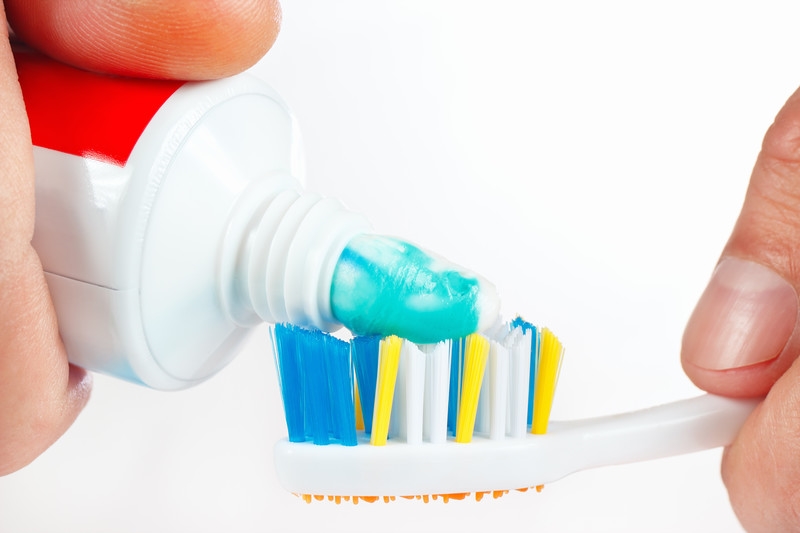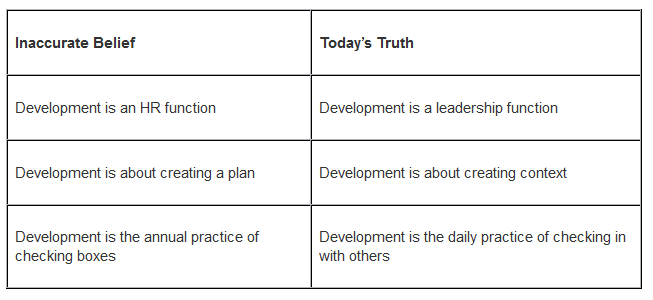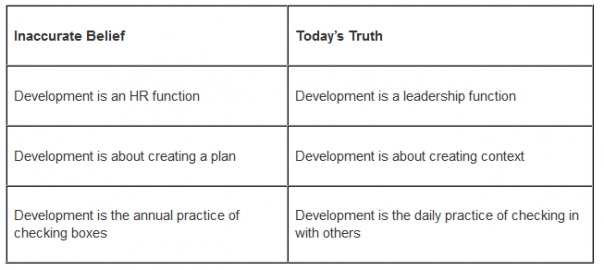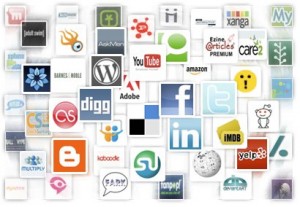— November 13, 2017
Helping others develop, learn and grow. It may be among the most fundamental responsibilities human beings have to one another. And it’s played out for millennia, as the lessons and cultural norms of past civilizations were passed on generation to generation much like parents today guide their children toward adulthood.
 Yet, in the workplace, where it plays an equally vital role supporting organizational (and sometimes individual) advancement and survival, development doesn’t always get the attention it deserves. Over the years, leaders have become confused about what it is and how it operates. They’ve internalized some inaccurate beliefs that drive ineffective behavior.
Yet, in the workplace, where it plays an equally vital role supporting organizational (and sometimes individual) advancement and survival, development doesn’t always get the attention it deserves. Over the years, leaders have become confused about what it is and how it operates. They’ve internalized some inaccurate beliefs that drive ineffective behavior.
Effective leaders know that development is not an HR function; it’s a leadership function. They understand that while plans are static, context is dynamic and absolutely required in today’s complex workplace. And effective leaders appreciate that development is not about an annual process whereby forms are completed and boxes are dutifully checked; it’s about connecting with people organically and in an ongoing fashion day-in and day-out.

Think about it. How ridiculous would it be to schedule and set aside a full hour each year, making a genuine commitment to do the best job possible performing your oral hygiene? After some serious flossing and brushing all over, can you imagine putting away the toothbrush and Crest for another year? Of course not.
But leaders regularly apply this kind of annual “one and done” mindset to development. And then they’re surprised by the decaying skills, the plaque that chokes off motivation and engagement, the bad taste in their employees’ mouths, and the cavities that eat away at commitment and trust.
Leaders can’t expect to build the kind of trust, commitment, and performance required to thrive in today’s competitive environment by addressing development once each year. When employees are allowed to talk about development for just one hour out of the 2,080+ hours they toil away at work each year, expectations can build to an “unmeetable” level. And the half-life of even a constructive annual conversation has grown increasingly short. Employee motivation and focus drop dramatically within days after the annual Individual Development Planning meeting.
What’s the answer? Brush your teeth and develop your people daily.
Formal, scheduled connections (like weekly one-on-ones, performance appraisals, and IDPs) are a small part of genuine, effective, sustainable development. Leaders must supplement these structured and scheduled development stop-downs with opportunities to spontaneously leverage small moments within daily work to help others grow.
Look around. At any given moment, there’s likely an opportunity to connect with an employee. There’s likely an opening to offer feedback, acknowledge effort, highlight progress or praise results. There’s likely the chance to explore what others are learning or even just find out what’s going on.
It doesn’t have to be drawn out. A couple of minutes is all it takes to help employees grow. It doesn’t have to be formal or pre-arranged. Development can happen right in the workflow, in the lunch room, walking to a meeting, or driving to a client site.
And it definitely doesn’t have to be an annual practice. In fact, it’s daily attention to employee development (and teeth brushing) that will ensure healthy and happy smiles for years to come.
Image: (c) Can Stock Photo / borusikk
Business & Finance Articles on Business 2 Community
(81)
Report Post




